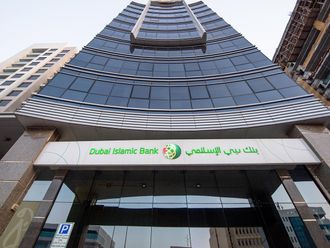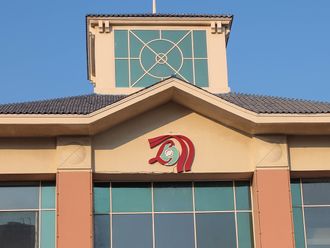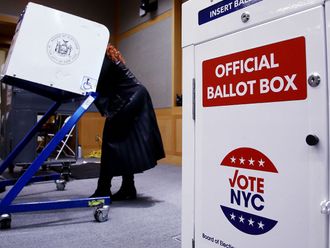
Dubai: Nations calling for severe sanctions against Russia are urging for suspension of SWIFT services to the country in the context of its invasion of Ukraine.
SWIFT or Society for Worldwide Interbank Financial Telecommunication facilitates international financial transactions through its global network.
The Belgian-based consortium links more than 11,000 financial institutions operating in more than 200 countries and territories, acting as a critical hub enabling international payments. Last year, the system averaged 42 million messages a day.
‘Financial nuclear weapon’
Recently French Finance Minister Bruno Le Maire called it a ‘financial nuclear weapon’ as the suspension of SWIFT’s services to Russia has the potential to bring the country’s capabilities to do international financial transactions.
Cutting off Russia from the network would cause a major disruption to its economy as it would severely restrict the country’s access to global financial markets.
The ban would make it difficult for Russian firms and individuals to pay for imported goods or receive payments for their exports, dealing a major blow to the country’s crucial oil and gas sector, which relies heavily on SWIFT for the movement of funds. It would also restrict Russians’ ability to invest or borrow overseas.
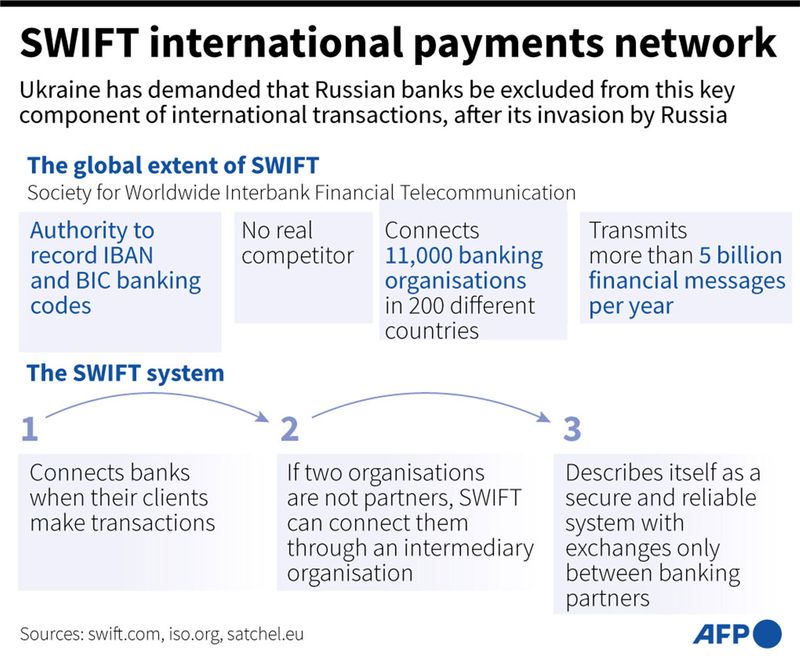
Russia’s options
Although a suspension from SWIFT has the potential to hurt the Russian financial system and the economy, analysts say the country has alternative channels to withstand such a move. Russia has established an alternative payments system and China also has its own system Russia could use, but the Atlantic Council notes both platforms are significantly smaller than SWIFT and wouldn’t sufficiently offset the sting of being cut off.
Russia has developed its own payment messaging network, called SPFS. The system, which handles about a fifth of domestic payments is nowhere near to the efficiency of SWIFT.
Russian financial institutions could use other channels such as phones, messaging apps or email as alternatives and process payments via banks in countries that have not imposed sanctions. But these alternatives would not be as efficient and secure as SWIFT and could lead to higher costs and a fall in transaction volumes.
EU, US, UK and Canada takes the lead
The EU economy has vast business relations with Russia’s than the US economy is and stands to lose much more if Moscow were to be shut out of SWIFT.
Data from the Bank of International Settlements (BIS) shows that EU banks hold a major chunk of the nearly $30 billion (€27 billion) in foreign banks’ exposure to Russia.
The European Union is Russia’s biggest trade partner. About 37 per cent of Russia’s imports came from the EU in 2020 and nearly 38 per cent of its exports went to the EU. The bloc relies heavily on Russia for its energy needs and gets more than a third of its gas supply and about a quarter of its oil from the country.
Josep Borrell, the EU’s foreign policy chief, acknowledged Friday that the bloc’s member states have so far reached no agreement on SWIFT. “Maybe it can be adopted in the following days, it will depend. We are exploring all possibilities,” said Borrell.
A decision to cut Russia off from SWIFT has become one of the first points of serious division among the European Union nations. Ejecting Russia from SWIFT would hurt the EU’s ability to pay for the imports of Russian oil and gas it relies on. Some EU leaders, including German Chancellor Olaf Scholz, have justified their inaction on the SWIFT ban by suggesting that they were holding back some ammunition for later.
A decision by Western allies on Saturday to block "selected" Russian banks from the SWIFT payments system will inflict a crippling economic blow, but also cause much pain to their own companies and banks. And the allies still have room to do more.
Russian banks denied access to SWIFT will find it harder to communicate with peers internationally, even in friendly countries such as China, slowing trade and making transactions costlier.
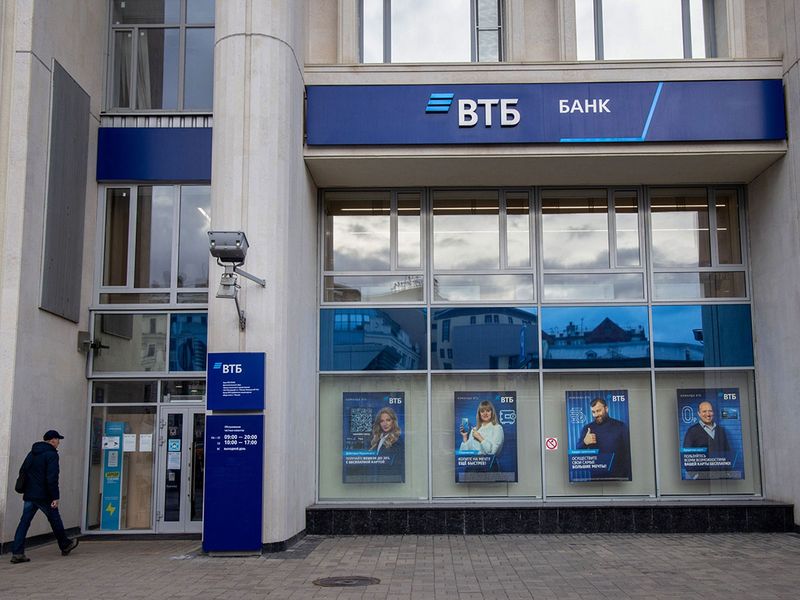
But the allies, who also vowed curbs on Russian's central bank to limit its ability to support the rouble, have not yet said which banks would be targeted. That would be crucial to the measure's impact, said sanctions and banking experts.
"The devil will be in the details," said Edward Fishman, an expert on economic sanctions at the Eurasia Center of the Atlantic Council think tank. "Let's see which banks they select." If the list covered the largest Russian banks, such as Sberbank, VTB, and Gazprombank, it would be "an absolutely huge deal," he wrote on Twitter
Sberbank and VTB have previously said that they were prepared for any developments.
The decision to kick some banks off SWIFT, though not all, could encourage "nesting", in which Russian entities turn to non-sanctioned banks and large multinationals instead in a bid to access the global financial system.
Such a workaround for the Russians would create compliance headaches for global banks.
Trouble for rouble
The sanctions are likely to hit the rouble hard when markets open on Monday.
Earlier on Saturday, Germany, which has the EU's biggest trade flows with Russia, toughened its stance and suggested it was looking for a way to remove Russia from SWIFT while trying to limit the collateral damage.
Multinationals with large treasury operations and banks with SWIFT access could become the new hubs of financial transactions out of Russia.
US takes decisive action
Some of Wall Street's largest banks told lawmakers and the Biden administration on Saturday that kicking Russia off the SWIFT financial-messaging system would have far-reaching fallout that could hurt the global economy and undermine the purpose of the penalties.
Firms including JPMorgan Chase & Co. and Citigroup Inc. suggested Washington stick with other types of sanctions to punish Russia for invading Ukraine. Opponents of the idea passed along a warning: Booting Russia from the critical global system could backfire, sending inflation higher, pushing Russia closer to China and shielding financial transactions from scrutiny by the West. Such a move could also have much wider ramifications, possibly causing an energy crisis in Europe and ruining the livelihoods of ordinary Russians, a scenario officials say they want to avoid. It might also encourage the development of a SWIFT alternative that could eventually damage the supremacy of the US dollar.
Despite such risks, the White House on Saturday said in a joint statement that in concert with the European Commission, France, Germany, Italy, UK and Canada, the US is supporting the expulsion of "selected Russian banks" from SWIFT "within the coming days", so as to "further isolate Russia from the international financial system and our economies."
Kicking those Russian banks out of SWIFT, the high-security network that connects thousands of financial institutions worldwide, "will ensure that these banks are disconnected from the international financial system and harm their ability to operate globally," said the statement.
In addition, restrictive measures will be imposed to "prevent the Russian Central Bank from deploying its international reserves" in ways that undermine the impact of the Western sanctions, said the statement.
Created in 1973 and based in Belgium, Swift links 11,000 banks and institutions in more than 200 countries. SWIFT was created by American and European banks, which did not want a single institution developing their own system and having a monopoly. The network is now jointly-owned by more than 2,000 banks and financial institutions.
It is overseen by the National Bank of Belgium, in partnership with major central banks around the world - including the US Federal Reserve and the Bank of England.
SWIFT a sort of instant messaging system that informs users when payments have been sent and arrived. It sends more than 40 million messages a day, as trillions of dollars change hands between companies and governments.
What finacial experts say about SWIFT ban
The United States, Britain, Europe and Canada on Saturday moved to block Russia's access to the SWIFT international payment system as part of another round of sanctions against Moscow as it continues its assault against Ukraine.
The United States and its European partners also said they would impose restrictions on Russian's central bank to limit its ability to support the rouble.
Mohammed El-Erian, Part-Time Chief Ecoonomist and Economic Advisor, Allianz: "If applied comprehensively rather than piecemeal, excluding Russia from SWIFT has the potential to cripple the economy there. Inevitably there would be spillovers and spillbacks, including more of a stagflationary impetus to the global economy and greater likelihood of Russian arrears to western companies and creditors."
Michael Rosen, Chief Investment Officer, Angeles Investment Advisors: "Europeans saw this move, expelling Russia from SWIFT, as a nuclear option, that is, the most severe, last resort, action that could be taken. If so, it will have as much impact as throwing a spear against a tank."
Tom Martin, Senior Portfolio Manager, Globalt Investments, Atlanta: "SWIFT is going to be painful and the markets are going to recognize that. What you are going to get is continued volatility as all the participants are going to be adjusting their risk tolerance to what they think the situation is about."
Karl Schamotta, Chief Market Strategist, Corpay, Toronto: "We should see the ruble plunge, most likely through the 86 mark at the open. With newly announced sanctions likely to cripple the Russian economy and diminish the attractiveness of anything that can be traced back to Moscow, investors will abandon ship en masse. And with the central bank likely to face severe constraints on currency intervention, the ruble will struggle to find a bottom. No one wants to catch a falling knife."
Former Russian Deputy Central Bank Chairman Sergey Aleksahenko: "It means there is going to be a catastrophe on the Russian currency market on Monday. I think they will stop trading and then the exchange rate will be fixed at an artificial level just like in Soviet times." "It's much worse than [the Russian financial crisis of] of 1991 because it's not clear on what conditions all this can be canceled. This is a very strong decision, the strongest one that could be taken and I consider it is absolutely correct."
-- From Reuters



